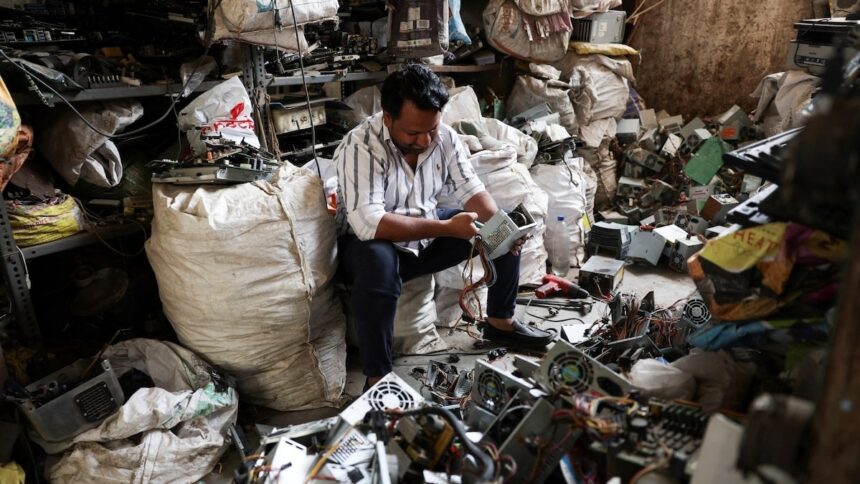South Korean electronics giants LG and Samsung have filed lawsuits against the Indian government, challenging a recent policy that increases payments to electronic-waste recyclers, according to a report from Reuters. Both companies argue that the regulation imposes excessive financial burdens and fails to tackle the root issues within India’s e-waste sector.
According to court documents reviewed by Reuters, the legal challenges by LG Electronics and Samsung Electronics will be heard on Tuesday, alongside similar petitions from other industry players. The move signals rising tensions between multinational corporations and the Indian government over its evolving environmental compliance regime.
India is currently the world’s third-largest generator of electronic waste, behind China and the United States. However, official data suggests that only 43% of the country’s e-waste was recycled last year, with at least 80% of the market dominated by informal scrap dealers.
The policy in question mandates a minimum payment of ₹22 (around 25 US cents) per kilogram to formal recyclers handling consumer electronics. The government argues that setting a price floor is essential to draw more organised players into the sector and drive investment in formal recycling infrastructure.
Reuters reports that the companies have pushed back. In its 550-page petition filed with the Delhi High Court on 16 April, LG contended that the policy was flawed, stating: “Merely by fleecing companies and taxing them in the name of the ‘polluter pays principle’, the objectives sought to be achieved cannot be achieved.”
Samsung, in its 345-page filing, expressed similar concerns, asserting that the regulation of prices does not inherently advance environmental protection and is “expected to cause substantial financial impact.” The company had previously written to the Prime Minister’s Office, arguing that the new pricing was “5-15 times” higher than current rates.
LG also wrote to the government in August, saying the proposed rates were “very high and should be reduced” and that market forces should be allowed to determine fair prices.
They are not alone in their opposition. Japanese multinational Daikin, along with Indian companies Havells, Voltas, and Blue Star, have also filed lawsuits contesting the policy, reports Reuters. Blue Star’s filings cited “compliance burdens” as a key concern. Meanwhile, Johnson Controls-Hitachi has recently withdrawn its petition, though no explanation was provided in court documents seen by Reuters.
According to consultancy Redseer, India’s e-waste recycling rates remain well below international benchmarks. Recycling rates in the US are up to five times higher, and in China, at least 1.5 times greater.








